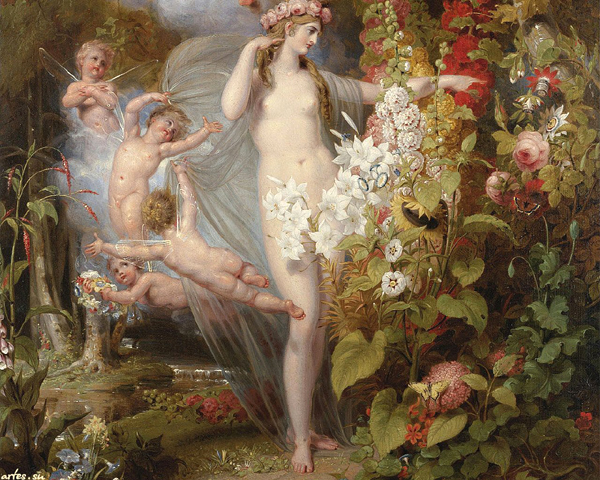Floralia
“The
Triumph of Flora”, painting by Giambattista Tiepolo (1696-1770),
now in the M. H. de Young Memorial Museum, San Francisco, CA, USA.
The Floralia were festivals celebrating and propitiating the fecundity
and fertility of the earth, which comprised offerings of sacrifices
and throwing of beans. The fava beans were regarded in the Ancient World
as symbols of fertility and abundance, and were believed a privileged
medium to communicate with the world of the dead. On the other hand,
in the ancient and traditional cultures there was no continuity solution
between the world of the living and the world of the dead, because they
were both seen as part of a single transformation cycle of nature’s
vital forces. The festivals of Flora became, later on, a kind of parody
of the gladiatorial games, with competitions which included races after
goats and hares, and performances in which prostitutes took place. These
aspects attracted the criticism of the early Christian writers, who
have emphasized them, but they were well-adapted to the Roman festive
calendar, where the month of April was mainly dedicated to the generative
powers and to the female power of seduction.
[Image: http://en.wikipedia.org/wiki/Floralia]


